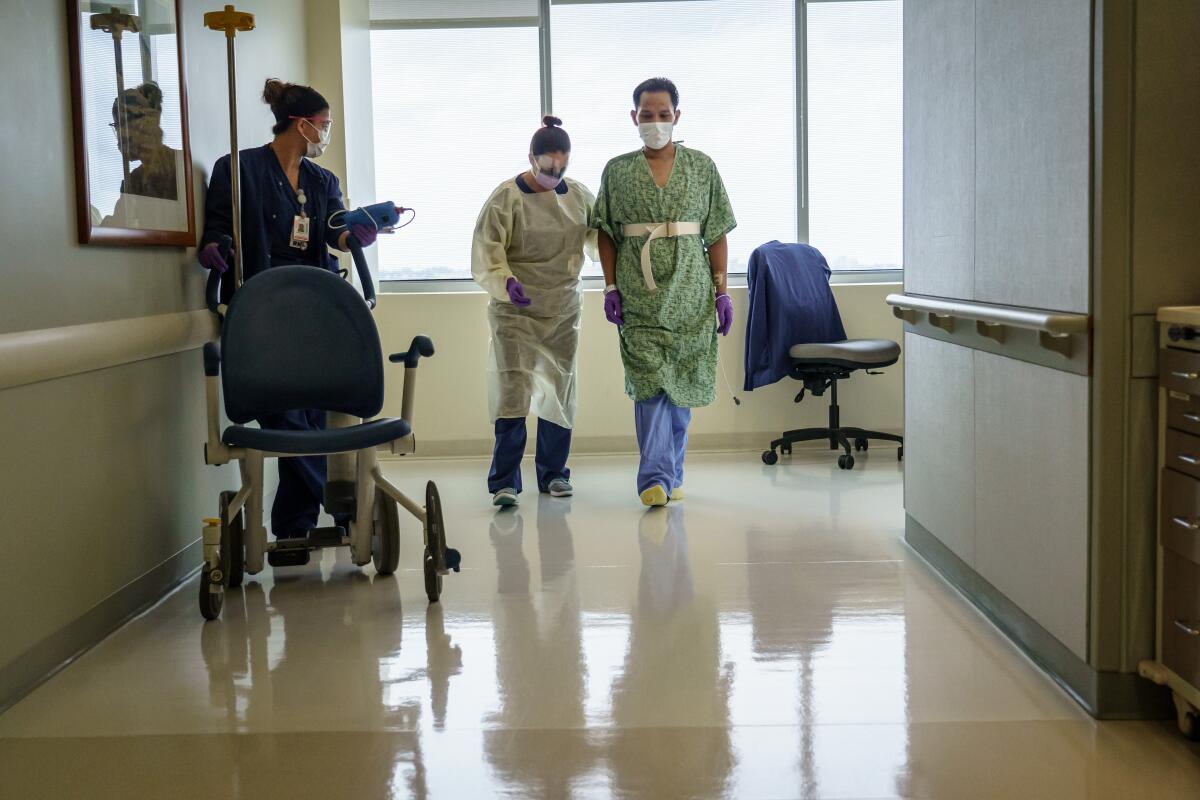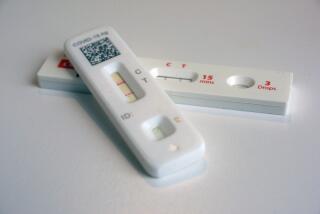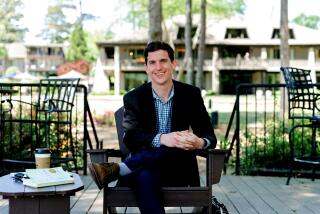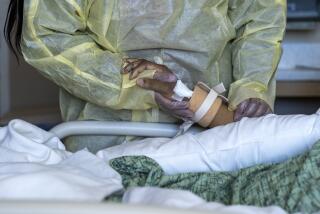After recovery, some COVID patients face lingering stigmas

SAN DIEGO — Don Udan spent almost three weeks on a ventilator while hospitalized with COVID-19, but he has been slowly returning to his normal life since being discharged April 21.
Every so often, though, he has a wake-up call that life may be different for a while.
“When I had my appointment to get an ultrasound on my leg, the tech found out I was in a hospital diagnosed with COVID, and she right away left the room,” Udan said. “She kind of freaked out.”
The tech returned to the room wearing a medical gown she believed would help protect her from the coronavirus, he said.
Udan had tested negative for the virus by the time he went in for his ultrasound to check leg issues that developed while he was hospitalized, but the incident at the lab illustrated what many patients have experienced after recovering from COVID-19.
An article written by Mayo Clinic staff members reported that people who have had the disease sometimes feel shunned or excluded from social situations.
The stigma includes more than just recovered patients. The article reported that members of ethnic groups associated with certain diseases also have been stigmatized, with people of Asian descent especially targeted during the COVID-19 pandemic.
The Centers for Disease Control and Prevention also published an online article on the stigma sometimes associated with COVID-19.
That article noted that even people with an unrelated cough, who live in a group setting or are homeless, may be shunned by others who suspect they have the coronavirus.
In extreme examples, people stigmatized by a contagious disease may face verbal or physical abuse or be denied housing, education or employment, the articles said.
Udan hasn’t faced those types of issues but has noticed friends being especially sensitive around him since his recovery.
“When they say, ‘Hey, maybe we could plan to go to Balboa Park, but we have to keep our distances,’ I appreciate that they’d take the initiative to be sensitive to what I’ve been through,” he said. “They would tell me right away, ‘We’ll wear masks.’”
Udan was surprised, however, that some people assumed he still had the disease after he was released from the hospital.
“Some friends said, ‘I can’t wait to hang out with you when you don’t have it anymore,’” he said. “But they know I’m not in the hospital anymore. I’d assume they’d know once you’re out that you’re COVID-free already.”
The Rev. Shane Harris, president of the People’s Alliance for Justice, experienced similar situations.
“I call it COVID shaming,” Harris said. “It’s a real thing that happens. It happened to me for weeks after my healing.”
Harris tested positive for the coronavirus in early June. Although his symptoms were not as severe as Udan’s, the sickness took a toll. He had headaches, chills, a fever, a loss of smell and body aches, with his legs especially hurting in the end. Symptoms relented after five days.
He quarantined during his illness and twice was tested for the coronavirus, and both times had negative results.
“But I remember coming out and people asking, ‘Are you really healed, though? Are you actually healed?’” he said. “I had people badgering me about my health status. That’s personal. You don’t have to tell people your health information.”
Harris said he faults the CDC with instilling fear about the virus, leaving people to think that it’s a death sentence.
“Yes, lots of people have died,” he said. “And we remember those lives. However, this virus is not killing everybody. And also, if I get it, I don’t want to think of death. I want to think of life. I want to be healthy.”
Chula Vista City Councilman Steve Padilla contracted COVID-19 and was hospitalized for three weeks, spending 11 days on a respirator. He lost about 30 pounds by the time he was released April 4.
Since then, he said he’s experienced stigma only a couple of times.
Once was when he was attending a social justice rally in Chula Vista with the city’s mayor, Mary Salas.
“There was a family with signs and balloons, and we went over to introduce ourselves,” he said about the group, who wanted a photo with the mayor.
“When she introduced me as a COVID survivor, they sort of jumped back like I had the plague,” Padilla said.
While family, friends and community members have been pretty supportive overall, Padilla said there have been times when he‘s noticed people be a little startled and apprehensive when they hear he is a COVID survivor.
“Everything comes down to fear,” he said. “We fear what we don’t understand. We all have an obligation to get educated and listen to medical experts.”
Padilla recalled coming face to face with someone who questioned medical experts and dismissed the pandemic as a hoax. He was in line at a grocery store with his daughter, who started to fume at the conversation she was overhearing.
She interrupted the women speaking in front of them by saying she had overheard their conversation and would like to introduce them to her father, who almost died of COVID-19.
“I said, ‘Yes, I was very sick, and I hope you’ll take it seriously,’” Padilla said.
He recalled the woman he addressed appeared horrified on two fronts: embarrassed being called out for her comments and alarmed to encounter someone who once had the disease.
A New York Times article in May reported that many COVID-19 survivors have encountered discrimination, fear and anxiety among people they’ve come in contact with since their recovery.
A veterinarian refused to treat a dog owned by a woman who had recovered; a gardener would not trim the hedges outside a recovered man’s home; and a laundromat worker jumped at seeing New York City Councilman Mark Levine, whose illness had been reported on the local news, the Times reported.
The stigma sometimes associated with the disease has not been a problem for health authorities trying to track its spread, said Dr. Eric McDonald, medical director of epidemiology and immunization services for San Diego County.
“It’s extremely important that we get as much detailed information from people who are suffering from this infection in a timely manner,” he said. “And the good news is that we usually get that.”
McDonald encouraged people being interviewed by county workers to continue being forthcoming and not to worry about being stigmatized, because the information will be kept secret.
“There is a very small group of people who are reticent to give us information at first, and we need to establish trust with them and assure them that the information they give us is confidential,” he said, adding that sometimes it takes a few phone calls to build a relationship and trust.
In its article about stigma, the CDC also stressed that it is important for contact investigators to maintain the privacy of people being interviewed.
The CDC also advised community leaders and healthcare workers to combat the stigma associated with the disease by speaking out against negative behavior, including on social media, sharing accurate information about how the virus spreads, and speaking out against stereotyping groups of people who experience stigma because of COVID-19.
People who have experienced stigma or discrimination should consider virtual resources for mental health or social support services, the CDC recommended.
Warth writes for the San Diego Union-Tribune.
More to Read
Sign up for Essential California
The most important California stories and recommendations in your inbox every morning.
You may occasionally receive promotional content from the Los Angeles Times.











